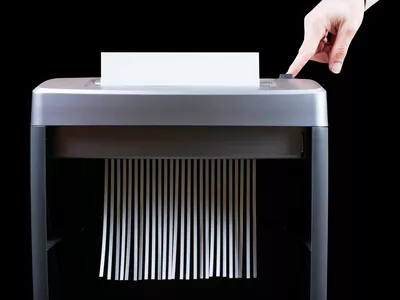
Next-Gen Connectivity Unveiled: PCI-SIG Releases CopperLink Cables for Enhanced PCIe Performance in Gen5 & Gen6 - Preparing for PCIe Gen7 Innovation

Cutting-Edge PC Architecture: Expertly Engineered for Efficient Air Cooling at the Heart of a Large Central Fan - Conquer Centrifugal Dynamics
Over on Chinese videosharing platform Bilibili, user 苏打baka uploaded a lengthy video showcasing the building, iteration, and operation ofa true fan PC build , by which we mean the entire PC has been built into the center of a giant box fan painted to look like a case fan. This video demo should not be mistaken for an actually-viableMini PC project, and does not constitute anyPC cooling advice .
苏打baka’s name is a combination of the Chinese characters for “soda” and Japanese-Romanized “baka” meaning “fool”, so their name can effectively be translated as “Sodabaka”, “Sodafool”, or “Soda-foolish”, depending on how semantic you feel like being. We’ll use Sodabaka. Besides this project, they also do lots of other PC hardware and gaming-centric content ontheir Bilibili channel .
Image 1 of 2
(Image credit: 苏打baka on Bilibili)
(Image credit: 苏打baka on Bilibili)
Now, let’s talk a little more about the details of the PC build in question. Sodabaka essentially took an old Intel Sandybridge-eraMini ITX motherboard and tested its operation while attached to a spinning fan.
The first attempt at this used a smaller CPU heatsink that didn’t adequately cool the system, even while it was spinning, with tests showing the processor reaching 100 degrees Celsius. However, this did function as a general proof of concept that you could make a PC spin violently at the center of a fan and still have it operate without issue.
LATEST VIDEOS FROM tomshardware Tom’s Hardware
So, when moving onto the final testing of the fan PC build, Sodabaka instead used an even larger passive air cooler — which may have been a good idea, if the final testing of the PC build didn’t also include steadily ramping up the speed of fan upon which the entire PC spins. While the beefier-cooler version of the fan PC does seemed to work, as far as its principle functionality went, its final testing run ended in disaster.
So, what happened? Did the static buildup short out the PC or something? Fortunately, nothing so mundane. Instead, the fan PC was tested at increasingly higher speeds until theweighty cooler was violently flung from the PC in the last moments of the original video. No wonder Sodabaka hid behind a riot shield for much of the video demo.
Stay On the Cutting Edge: Get the Tom’s Hardware Newsletter
Get Tom’s Hardware’s best news and in-depth reviews, straight to your inbox.
Contact me with news and offers from other Future brands Receive email from us on behalf of our trusted partners or sponsors
By submitting your information you agree to theTerms & Conditions andPrivacy Policy and are aged 16 or over.
Also read:
- [New] 2024 Approved Ultimate Roguelike Rankings The Best 10 Games
- [New] Masterclass 10 Secrets to Effective Livestreaming Cricket Games
- [New] Pushing Imagery Boundaries Mastering PS Distortion Methods
- [Updated] Effortless Techniques to Archive Google Call Transcripts for 2024
- 2024 Approved Narrative Techniques for Impactful Documentaries
- Discovering Perfection An In-Depth Look at LG's 4K Screen
- Electric Vehicle Battery Replacement Prices: What Can You Expect to Pay?
- In 2024, Audio Enthusiast Hub Capture and Audit MP3 Files
- In 2024, Learn to Mask & Blur A Photo Editing Essential
- iPogo will be the new iSpoofer On Honor X7b? | Dr.fone
- Overcoming 'Mfc4eb0a.dll Could Not Be Located' Issues with Ease
- Professional Guide Ensuring iMovie Content Shines on Vimeo
- Unleash Creativity with EZvide's Tool for Capturing Your Desktop for 2024
- Title: Next-Gen Connectivity Unveiled: PCI-SIG Releases CopperLink Cables for Enhanced PCIe Performance in Gen5 & Gen6 - Preparing for PCIe Gen7 Innovation
- Author: Michael
- Created at : 2024-09-25 23:47:56
- Updated at : 2024-10-02 20:48:57
- Link: https://extra-approaches.techidaily.com/next-gen-connectivity-unveiled-pci-sig-releases-copperlink-cables-for-enhanced-pcie-performance-in-gen5-and-gen6-preparing-for-pcie-gen7-innovation/
- License: This work is licensed under CC BY-NC-SA 4.0.
